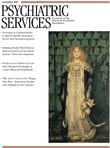Laura Restrepo's novel Delirium provides an intimate view of how "insanity" insidiously and yet abruptly emerges and changes lives forever. Most of the book's action takes place in the Colombian capital of Bogotá during the early 1980s. The story begins when Aguilar returns from a four-day trip to find Agustina, his wife with whom he has lived for three years, suffering from psychosis. For Aguilar, Agustina is "transformed into someone terrified and terrifying, a being I barely recognized." Aguilar, an unemployed professor of literature who resorts to selling dog food to make a living, torments himself trying to find an explanation for his wife's transformation.
Aguilar desperately hopes "to bring Agustina back no matter how much she resists." When doctors find no trace of foreign substances to account for Agustina's condition, Aguilar administers heavy doses of love and patience to no avail. At the urging of an aunt, Aguilar eventually takes Agustina to a hospital where she receives pharmacological treatments of barbiturates and sodium amytal. Sadly, yet understandably, none of these interventions provide any significant relief from Agustina's agitated highs, catatonic lows, or terrifying delusions.
Less severe concerns about Agustina's functioning existed before her first psychotic episode. Agustina, 16 years younger than Aguilar and "like an older daughter" to him, has previously displayed behavior that Aguilar referred to as "completely crazy" and problematic enough to require attempts at remedying through psychoanalysis, couples therapy, lithium, Prozac, behavior therapy, and gestalt therapy. Despite such problems, Agustina exuded beauty and displayed characteristics of an "exceptional woman" in the eyes of her husband.
In his quest to understand what happened to his wife, Aguilar learns that Agustina's torment began long before they met. The story reveals these past events through a complex web of multiple characters narrating in an alternating fashion between first and third person. A blend of familial mental illness, abuse, irreconcilable desires, and a society battered by war and corruption provides a ripe setting for Agustina's illness to emerge. Regrettably, uncovering Agustina's past does little to deaden Aguilar's pain of watching this beautiful and exceptional woman succumb to the ravages of her mental illness.
Delirium intimately portrays the complexities and devastations of mental illness. Based in Restrepo's homeland, this book reveals the anguish of the unhinged mind. As such, the novel yields value for clinicians, who may lament the fact that Agustina never receives suitable treatment, and nonclinicians alike. The writing style may take the unaccustomed reader by surprise because it lacks customary sentence punctuation. Additionally, Agustina's narrative switches, while arguably appropriate in displaying a divided self, provide challenges for the reader, especially when they occur within sections or sentences. Such challenges do not negate the novel's impressively rich understanding of severe and persistent mental illness. In the end, Delirium leaves the reader with a unique and disconcertingly closer look into a world where too many victims of mental illness live.

